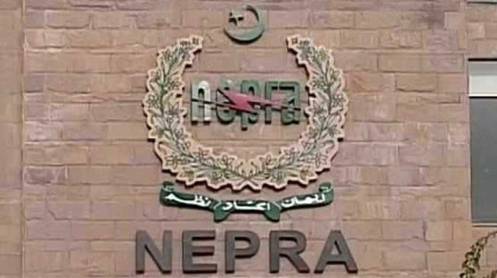Discos, KE fleeced consumers, says power regulator
ISLAMABAD: The National Electric Power Regulatory Authority (Nepra) has exposed the “controversial power theft drive” of the power distribution companies (Discos), defrauding millions of consumers of billions of rupees through excessive billing by engaging in malpractices.
In an inquiry report released on Monday, the power regulator regretted that the distribution companies were intentionally engaging in such malpractices to conceal their inefficiencies, causing thousands of consumers to suffer from higher electricity bills.
These companies issued electricity bills with invalid snapshots and manipulated billing cycles of over 30 days to deprive protected consumers of subsidies.
The power regulator’s inquiry report showed that domestic consumers had been excessively charged during July and August 2023.
It was notably found that over 5.7 million consumers in Multan Electric Power Company (Mepco) were billed for more than a 30-day billing cycle in July 2023, followed by around 1.2 million in Gujranwala Electric Power Company (Gepco) in August 2023.
Similarly, Faisalabad Electric Supply Company (Fesco) billed over 800,000 consumers in August 2023, Lahore Electric Supply Company (Lesco) around 700,000 in both months, and Hyderabad Electric Supply Company (Hesco) more than 500,000 users in July 2023.
This resulted in a change of slab from lower to higher, alteration of status from protected to unprotected, and from lifeline to non-lifeline for thousands of consumers.
The report expressed grave concern that in July and August 2023, thousands of consumers received bills with invalid snapshots.
Those identified as major contributors included Mepco, Lesco, Quetta Electric Supply Company (Qesco), and Sukkur Electric Power Company (Sepco).
According to the notified tariff terms and conditions, a billing period should be 30 days or less from the date of the last meter reading. However, the billing cycles of various Discos ranged from over 30 days to 40 days or more, leading to overbilling.
Defective Meters
As per Clause 4.3 of the Consumer Service Manual (CSM), defective meters must be replaced immediately or within two billing cycles if not available.
The report revealed that due to the non-replacement of defective meters, thousands of consumers were charged on average for more than two months and, in many cases, from one to three years or longer.
The respective Discos neglected meter replacement even after three years. This negligence prevented the calculation of accurate loss figures.
Over 400,000 consumers were overcharged during a two-month period (July to August 2023) due to incorrectly declared defective meters.
Meter Readings
According to Clauses 6.1.1 and 6.1.3 of the CSM, meter readings should be carried out monthly, and meter readers must take snapshots of readings using mobile/handheld units.
However, the data showed significant discrepancies in the metering and billing processes of all Discos, including invalid snapshots, mismatches between snapshots and bills, and double charging during defective meter periods.
Detection Billing
The power regulator observed that the detection bills charged by Discos were fake and frivolous due to which recovery ratio was significantly low in some Discos.
The inquiry reported revealed the alarming situation in Hesco and Sepco having recovery ratio of 5% & 6% respectively; whereas, the recovery ratio of detection bills in Iesco, Gepco and Fesco is much better with an average of 94%, 95%& 98% respectively.
The recovery ratio in Mepco, Lesco and Qesco are 85%, 70% & 69% respectively. The recovery ratio of detection bills in Tribal Areas Electric Supply Company (Tesco) and Peshawar Electric Supply Company (Pesco) is about 22%.
KE has not submitted the detail of recovery made against detection bills. It is of the view that the detection bills are charged during a certain point in time, whereas the payments of not only detection bills but arrears, if any, against monthly electricity bills are usually made by the consumers in installments over a prolonged time period which are posted collectively in respective consumer accounts.
“Had the detection bills been correctly charged, there would have a chance of more recovery,” the inquiry report said.
It is pertinent to mention here that recovery ratio is getting low due to the charging of wrong detection bills. The “good paying consumers” do not pay their regular bills because of this reason.
This results in increase of AT&C losses of feeder and consequently the number of load shedding hours are increased, which leads to more number of switching operations, thus causing deterioration of switchgears panels.
The power regulator noted that the only purpose of charging detection was to show the improvement in losses up to books level, however, actually it was not so. On the other hand, system is completely damaged and good paying consumers are suffering badly.
Findings
The power regulator found that most Discos failed to comply with relevant CSM clauses and tariff terms and conditions. This failure led to overbilling, particularly affecting domestic and low electricity users, impacting Disco recovery rates and increasing AT&C losses and load shedding.
Conclusion
The regulator concluded that Discos were charging excessive and detection bills through illegal and unlawful practices, violating Nepra Act, CSM, tariff terms and conditions, and other applicable documents.
Recommendations
The report recommended legal proceedings against all Discos for violations, immediate replacement of defective meters, revision of inflated bills, and actions against officials involved in illegal practices.
It also suggested procurement of Handheld Units (HHU) for transparent meter readings and scrutiny of unrecovered detection bills for authenticity and recovery.
The Discos were advised to follow the provisions of the CSM strictly in meter readings, percentage checking, issuance of detection bills, and replacement of defective meters.





